Dear readers, today I have a guest contributor. Shimizu Akira is a photographer who, as he says, likes to capture the “interesting normal” in his life. I recently discovered his newsletter, Japan Ordinary - Photos, and was particularly struck by a post about how he is getting ready to a major disaster. As you all know, Japan’s west coast was recently hit by a disastrous earthquake, so Shimizu-san’s story is very topical and addresses a subject that all people who live in Japan are acquainted with. Please read on.
Earthquakes are not a rare phenomenon in Japan. Small earthquakes occur somewhere in Japan every day. For this reason, Japan's earthquake resistance standards for buildings are among the strictest in the world. Additionally, many Japanese people prepare for disasters on a personal level. So this time, I would like to introduce how I prepare for disasters. Several scenarios are possible depending on the type and scale of the disaster, and the damage to your home.
If I Have to Evacuate Quickly
Emergency Bag
There is a backpack next to the entrance hall of my house. In that bag, I put things that I will need at the evacuation center and valuables that I want to keep close at hand. Examples include underwear, glasses, medicines, first aid kits, hygiene products, writing utensils, supplements, ID cards, cash, and bank statements. If I have to rush out of the house, I'll take that bag with me.
In the Bedroom at Midnight
If an earthquake were to occur while I was sleeping in my bedroom and the power went out, my escape would be dangerous. I may not be aware of the dangers lurking between my bedroom and the front door. A toppled cupboard may be blocking the walkway, or broken dishes or shards of glass may be on the floor.
I have this light attached to an outlet in my bedroom. This light has a built-in rechargeable battery that automatically turns on in the event of a power outage and can be unplugged and carried around.
I always keep a headlight by my bedside. Unlike a flashlight, it has the advantage of freeing up both hands.
In addition to these lighting devices, I also keep work gloves and shoes next to my bed. (In a typical Japanese house, we take off our shoes at the entrance hall, so we usually have to go to the entrance hall to put our shoes on.)
If the House Is Not in Danger of Collapsing
If I'm lucky enough to have minimal damage to my house, I'll be able to stay at home and be careful of aftershocks. However, even in that case, there is a high possibility that electricity, gas, water, etc. will be cut off. Eventually I would face the challenges of eating and toileting.
Food & Water
I stock up on bottled water and food. Many of them do not require cooking, but even if electricity or gas is cut off, you can use a portable gas stove to heat up food or make coffee. In Japan, many households own portable gas stoves. (However, handling fire is dangerous during aftershocks.)
When you run out of stored water, you have to wait until the municipality provides a water truck and then go pick it up once water is available.
Toilet
If the water is cut off, my toilet will have problems. It becomes impossible to flush away excrement. I have an emergency toilet set for such times. This set includes a plastic bag to be used over the toilet bowl and a coagulant to harden excrement.
Battery
If television, telephone, or the Internet becomes unavailable due to a power outage or infrastructure damage, the means for gathering information will be limited. In such situations, a battery-powered radio or lantern is a must. And in order to use these tools for a few days to two weeks, you will need spare batteries.
Cases Where It Is Necessary to Sleep in the Car
If I am unable to live at home and the local government-run shelter is not fully functioning, I will be sleeping in my car. If the roads are functional, I can travel to areas that are not at risk of landslides or tsunamis.
However, living in a car carries the risk of economy class syndrome. According to Japanese statistics, many people die from physical illness or mental stress while living in evacuation centers or in their cars.
Based on these things, I am considering purchasing a car that will allow me to sleep in the car safely and comfortably. The first condition I look for in a car is to have a completely flat space where I can stretch my legs and sleep.
The area where I live has experienced many large earthquakes in the past. Huge earthquakes occur in this region every 100 to 150 years, but 170 years have already passed since the last one.
To be honest, I don't want to accept it, but since I live in Japan, it seems like I can't escape this fate.
I must confess that though I have lived in Japan for more than 30 years, I have done almost nothing in preparation for a major disaster. As Shimizu says, many people try not to think about it. I guess my new year’s resolution is to fill this gap.

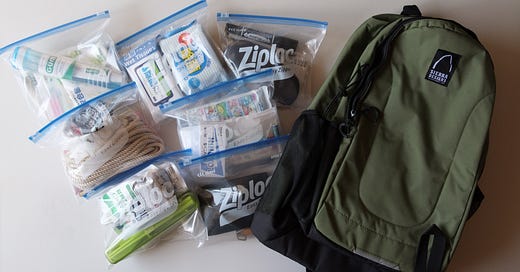



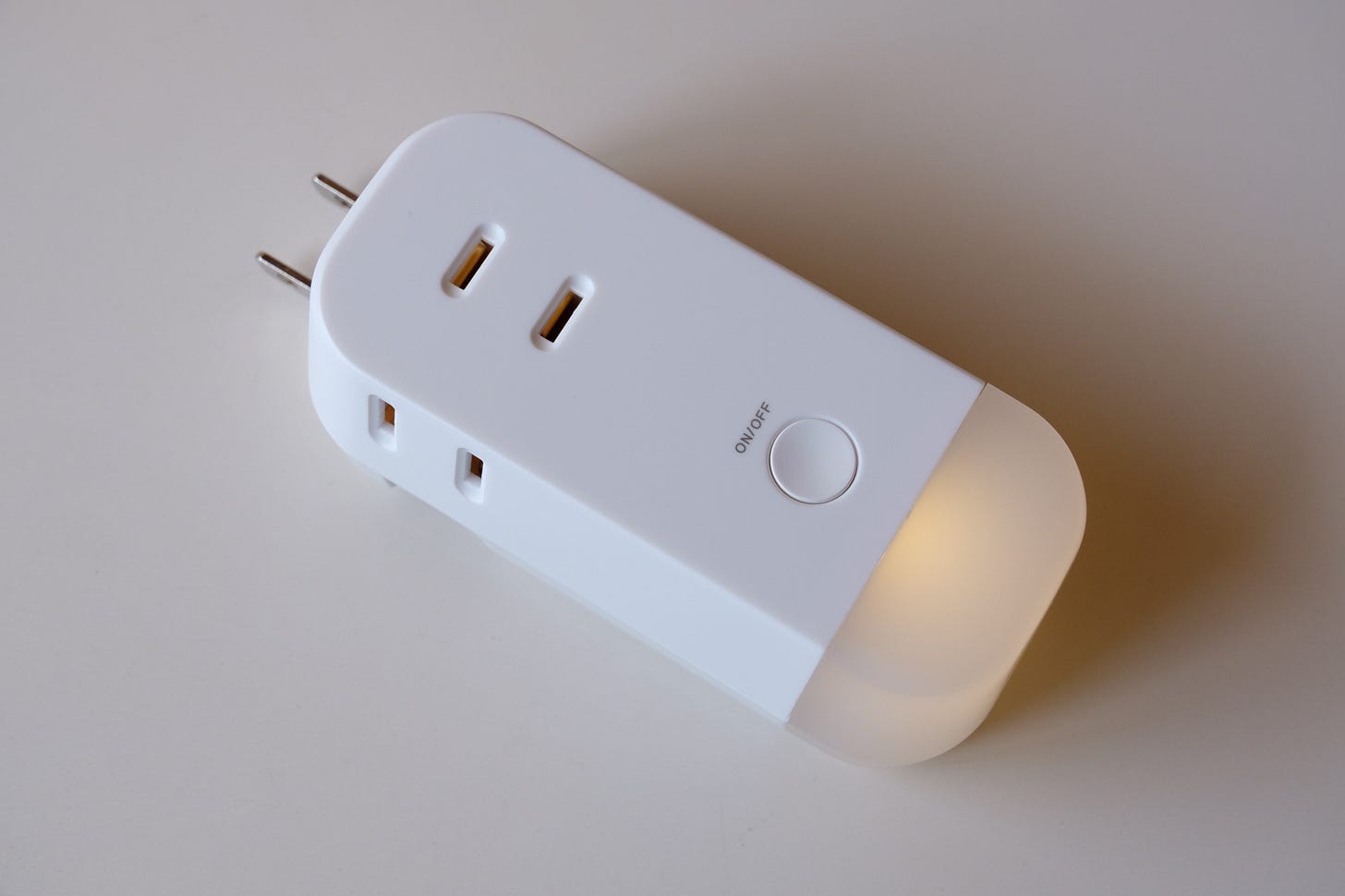
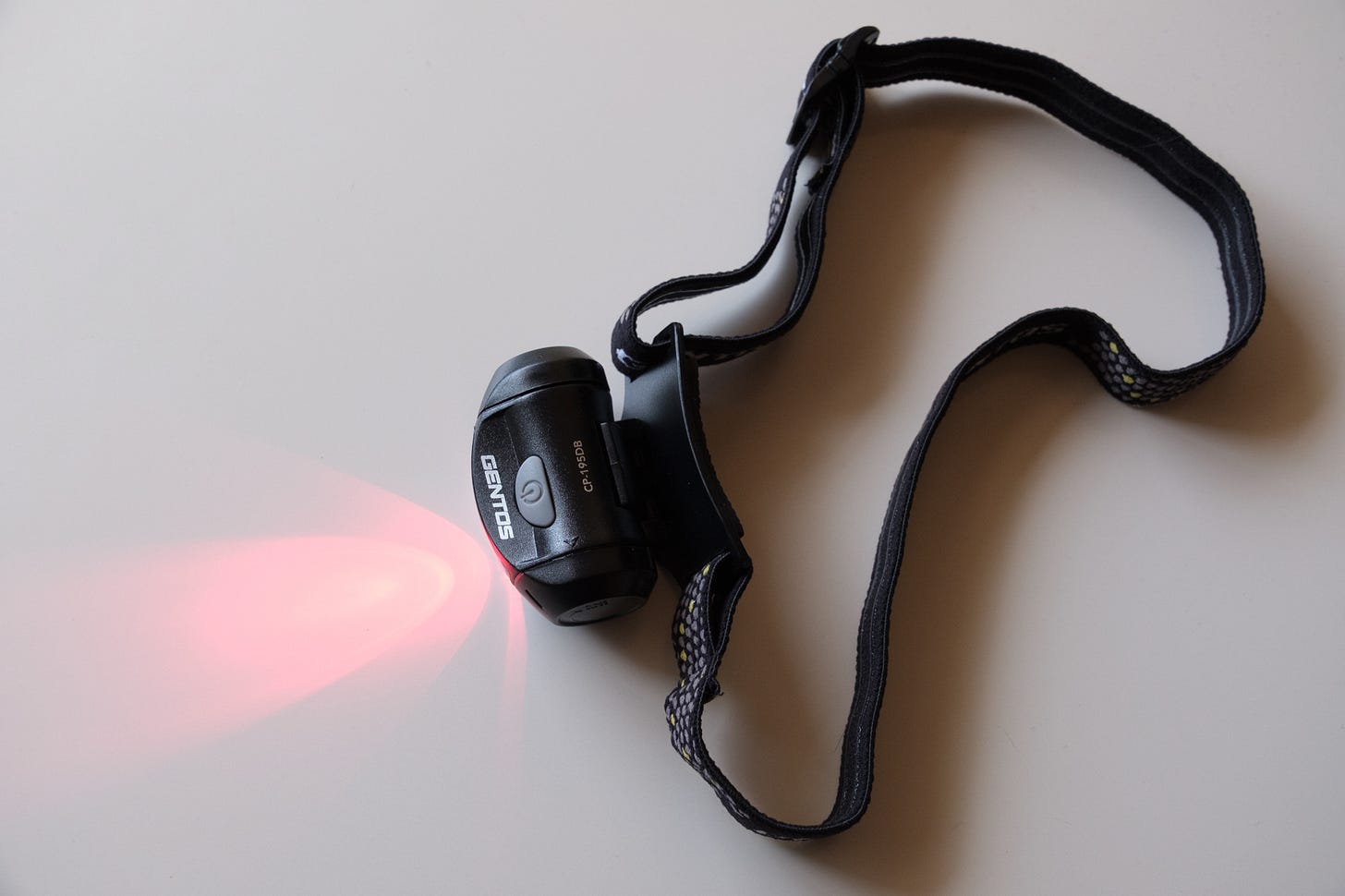
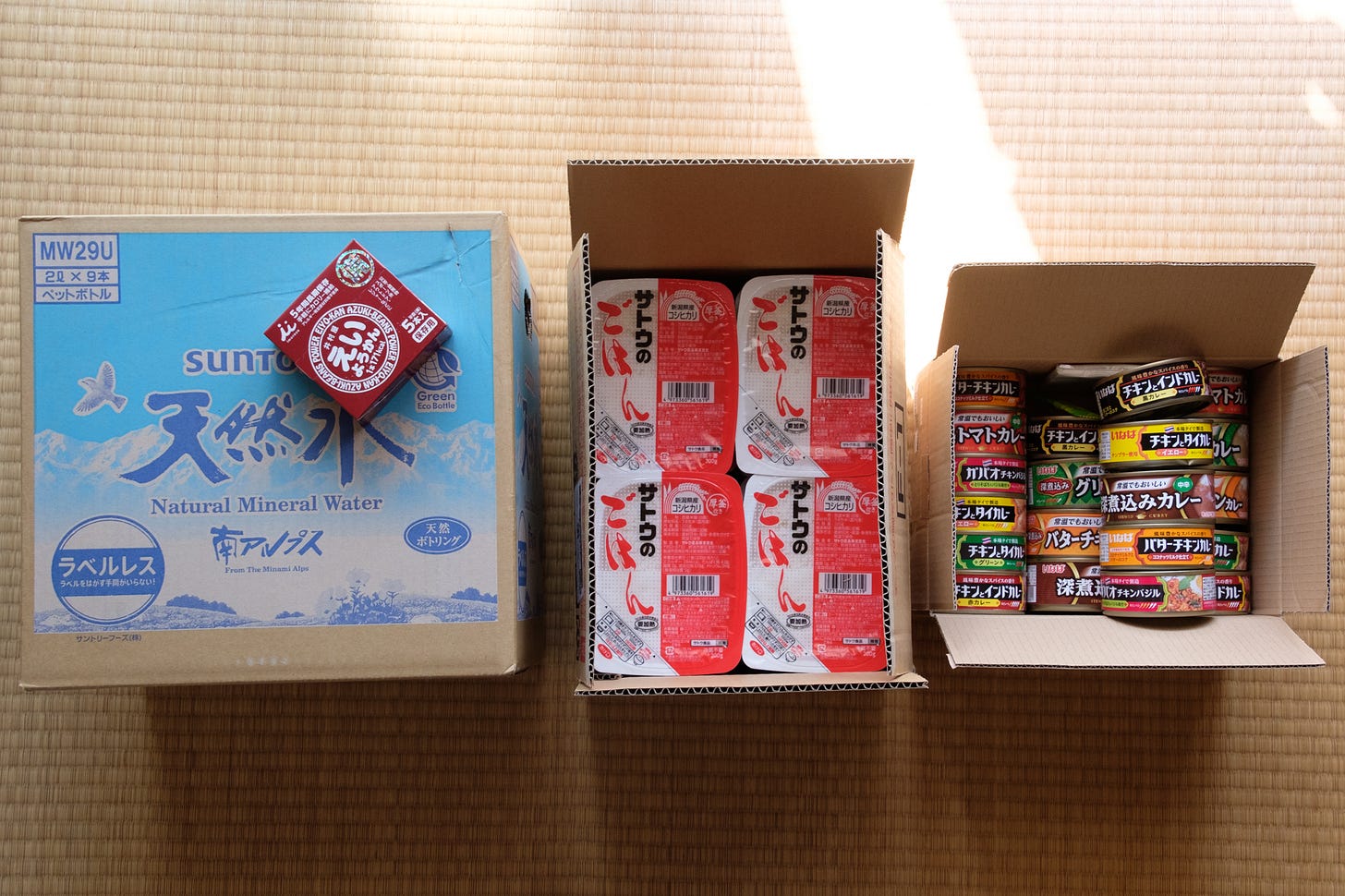
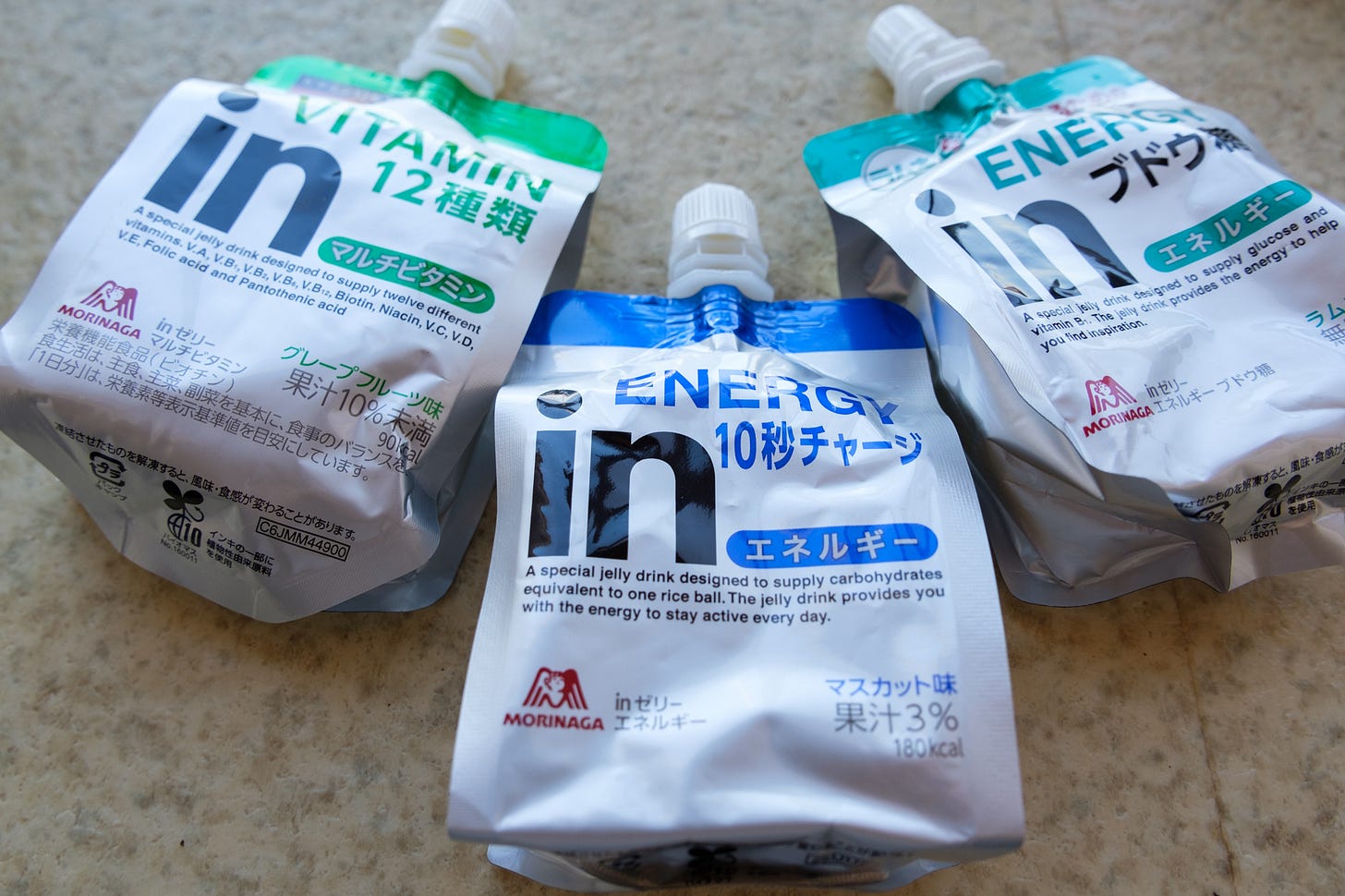
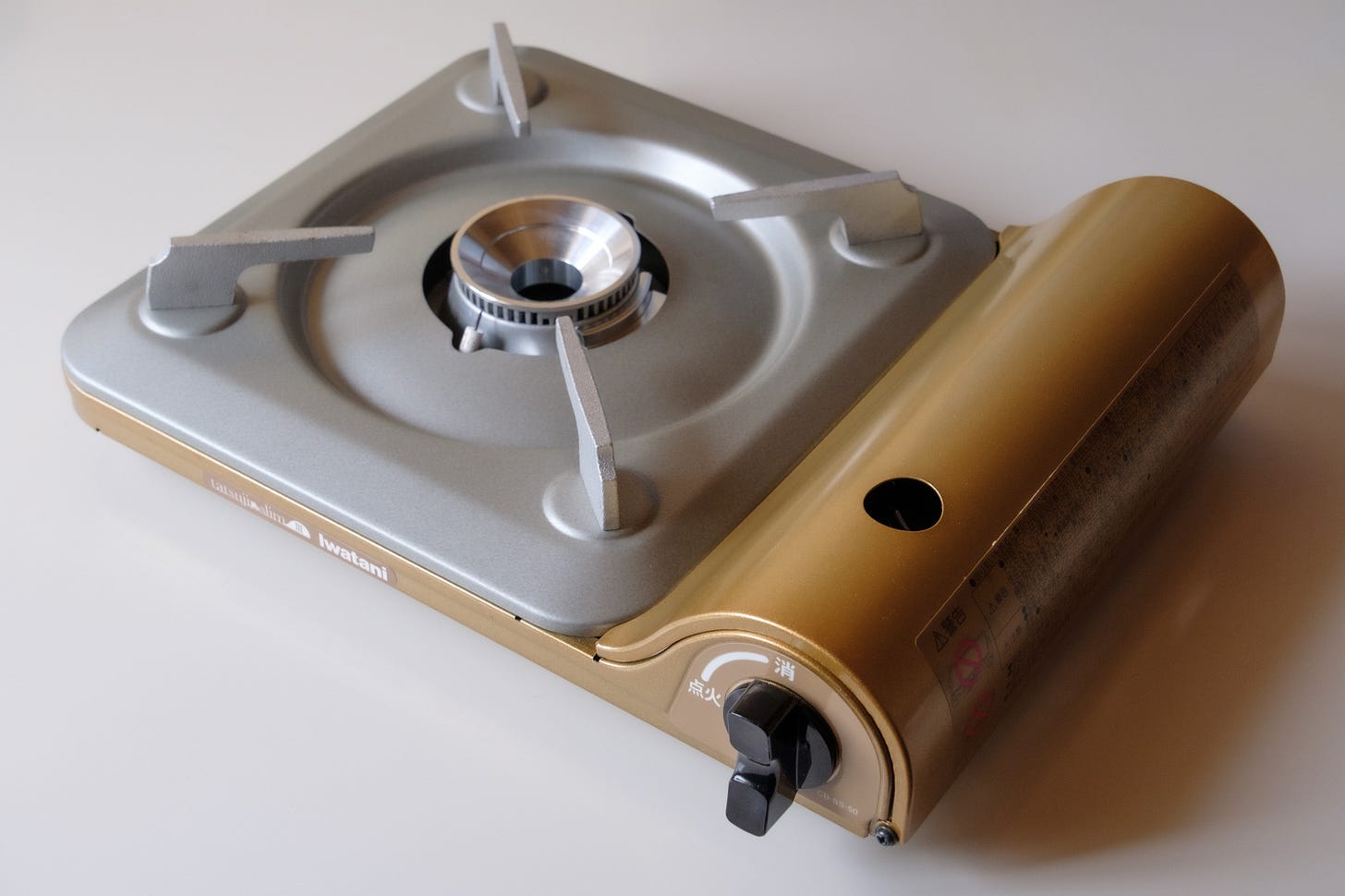
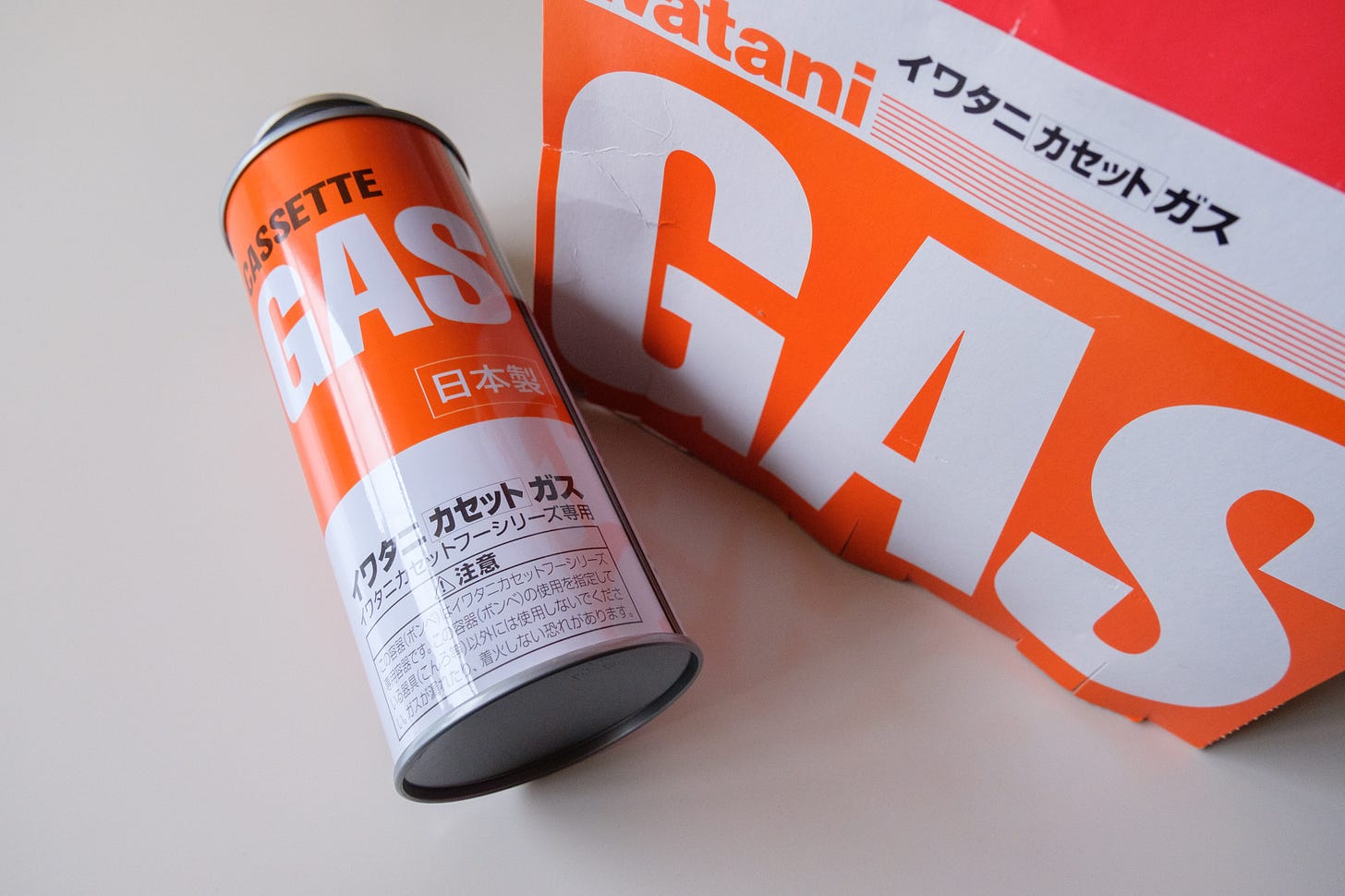
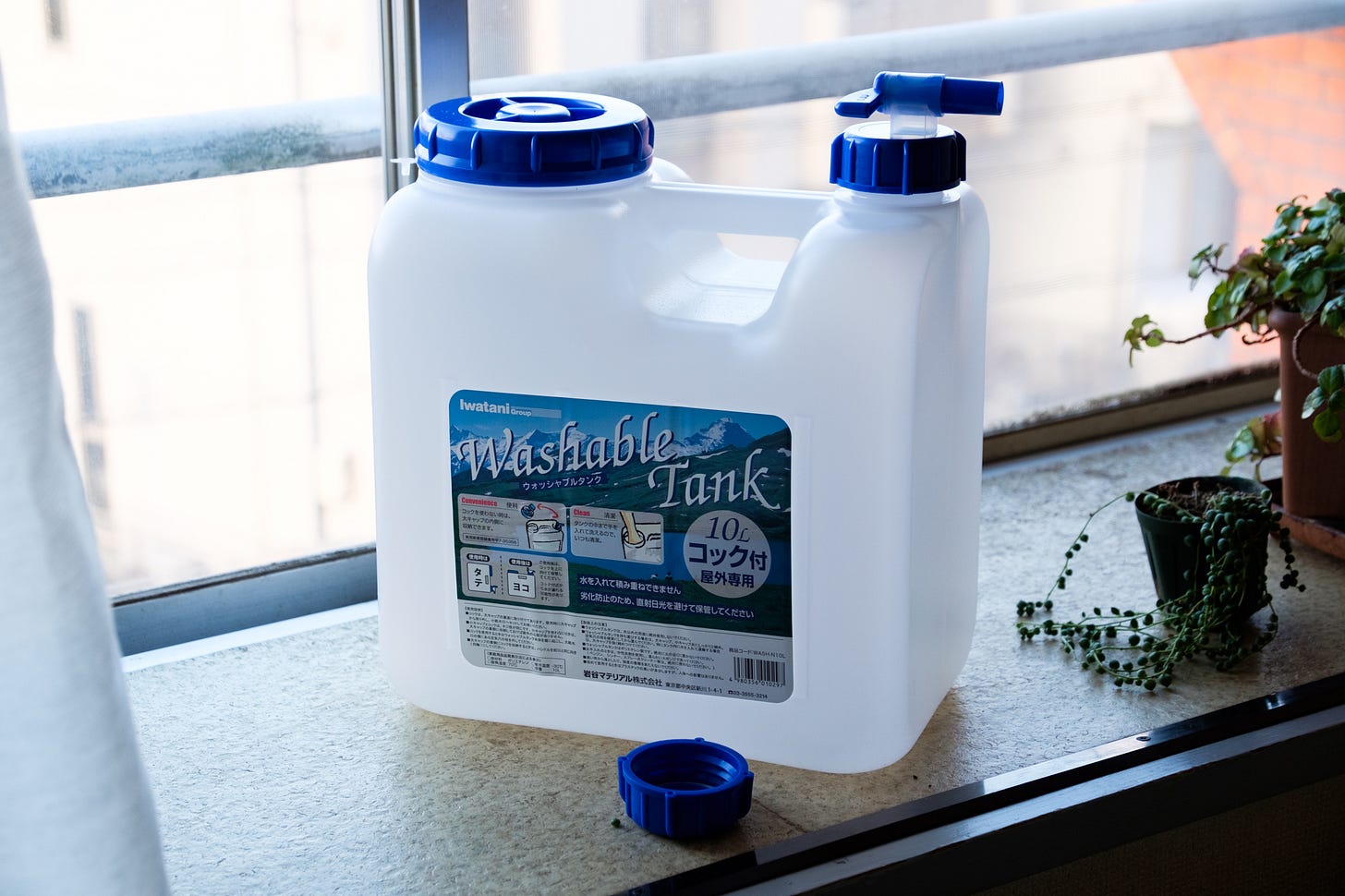

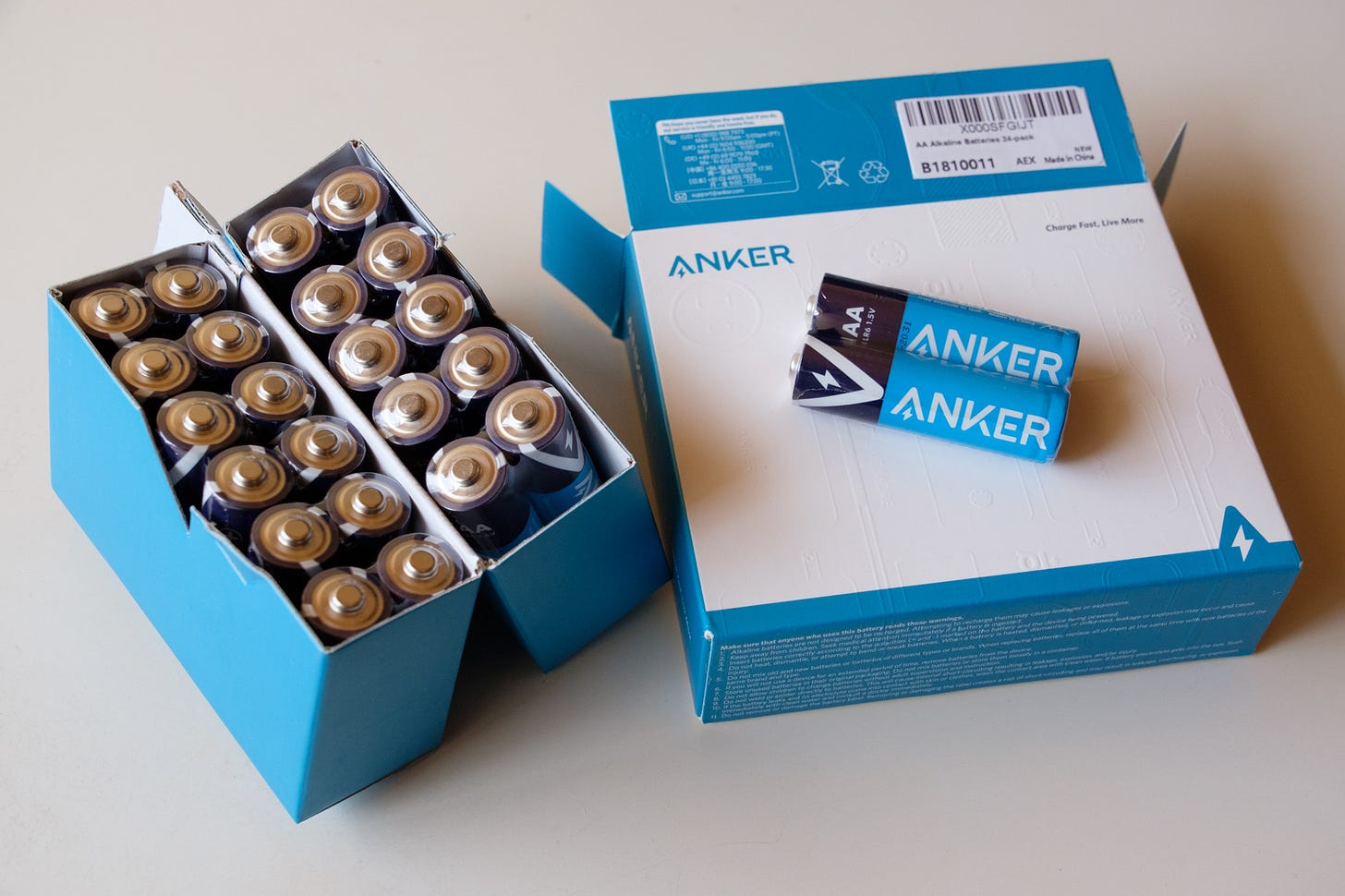
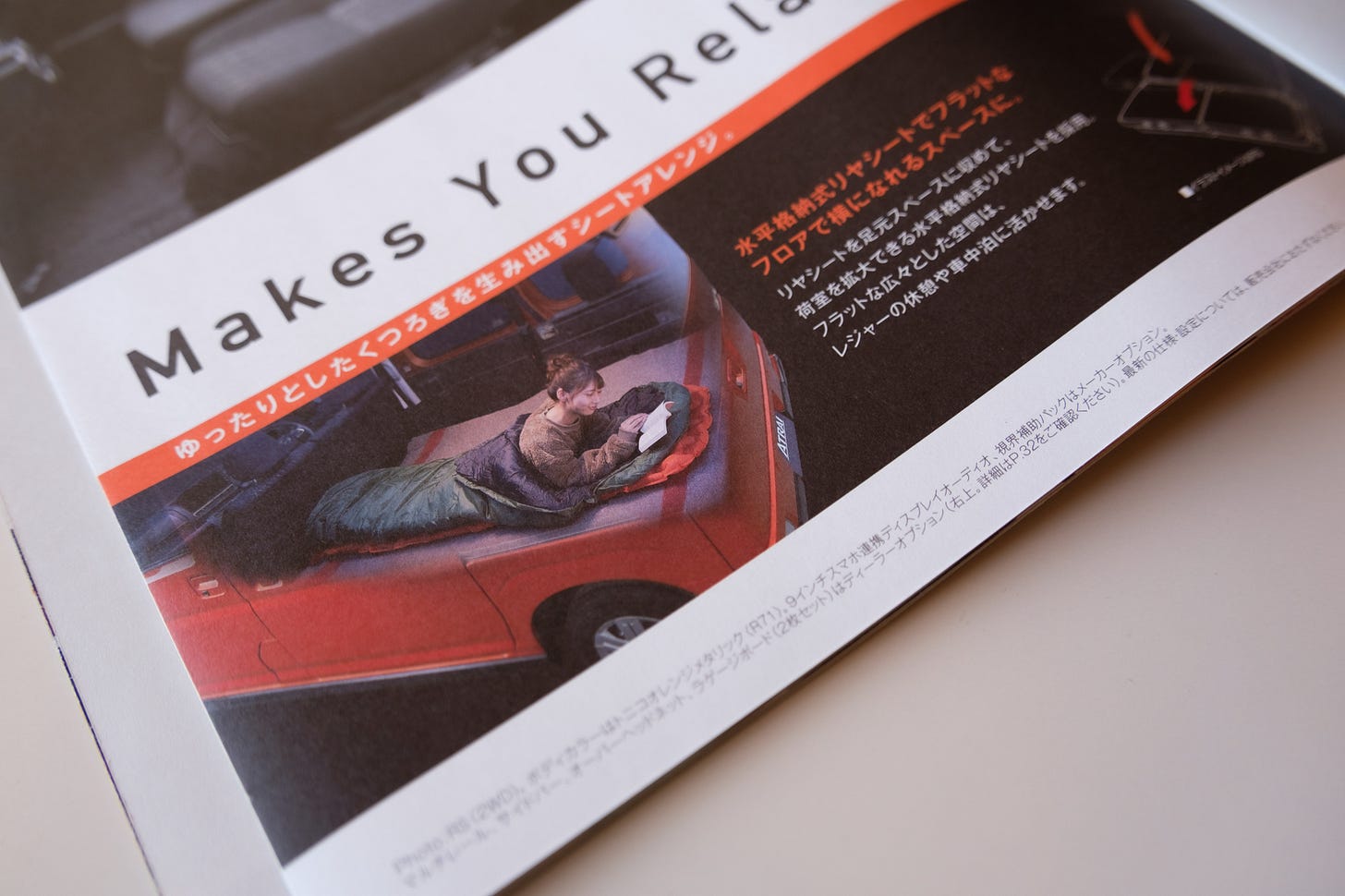
All great advice and very useful to those of us living here. Thank you
Hi Gianni. I can't find an email address, so I'll reach out to you here.
Here's the link to my new zine. It's about movies. And haikus. 😄
https://www.dropbox.com/scl/fi/8r3gogrtg2losi1bvu1sm/200_2_bp25rest.qxd.pdf?rlkey=bvurcnosdds5q6bjbylca6r4v&dl=0
Cheers,
Dann